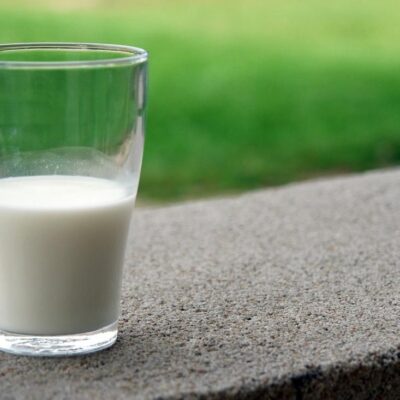Yes, dogs can drink goat’s milk. However, it is good when provided in moderation because excessive consumption of any food or drink, no matter how safe, can cause an adverse reaction. Goat milk contains beneficial nutrients for dogs and, when served in moderation, can make your dog healthy.

Safe: This food is generally considered safe by the veterinary community. Dogs can eat this food sometimes or in small amounts but contains little to no nutritional value.
| Food Safety | Safe in moderation |
| Nutritional Value | Probiotics, enzymes, antioxidants, |
| Potential Risk | Weight gain, bacteria, harmful pathogens, pancreatitis |
How Much Goat’s Milk is Safe for Dogs to Drink?
When feeding your dog goat’s milk, a few tablespoons1 should be enough. Moreover, it depends on your dog and their daily calorie intake to determine the safe amount.
Signs Your Dog Drank Too Much Goat’s Milk?
If your dog drinks an excessive amount of goat milk, they are likely to experience gastrointestinal issues.
Monitor your dog’s health if they do not feel well and seem lethargic. They might go through diarrhea, vomiting, and abdominal cramps if they have had too much goat’s milk.
Frequently Asked Questions
-
Typically, goat’s milk is safe for puppies, but there is no better alternative than mother’s milk. If the puppy can’t get goat’s milk for a reason, you can speak to your vet and find a safe milk replacer for your pet dog.
-
Whether a vet recommends goat milk or not, it is crucial to remember that every dog is different. So, when offering your pet dog something new, monitor them for some time and make sure they don’t experience any adverse effects.
-
A very small amount of goat’s milk might not harm your dog. However, adult dogs who drink milk daily can become sensitive to milk proteins.





